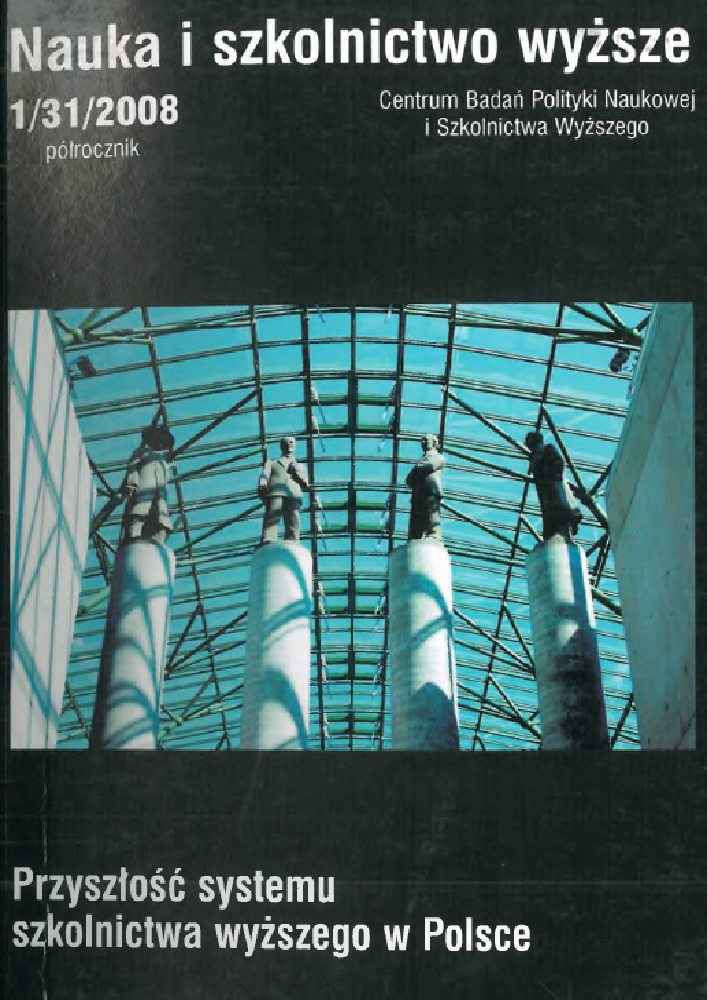Abstract
International organisations such as OECD, World Bank and the European Union exert an important influence on Poland’s policies in the area of education, science and research. The ideology of change as well as specific solutions (e.g. those concerning the financing of science, research activities and schools, management, indicator design) are codesigned using the expertise of the aforementioned bodies. At times, this influence is based on the fact that Poland is undergoing transformations which already took place in other EU countries a dozen or so years ago. Accordingly, solutions developed in those countries are also suitable for Poland (after some modifications). This concerns, for instance, the higher education boom, a phenomenon which Poland has experienced for some years now, as well as the collaboration between higher education institutions and their environment in a knowledge-based economy. The OECD report on Poland’s higher education indicates that our universities are characterised by weak community involvement. One reason behind it is the traditional notion of autonomy which represents an important value for the academic community. The educational offers at higher education institutions are not designed to meet the needs of the labour market. The supply of places for students (in terms of course types and curricula) depends heavily on schools’ capacities (supply-driven market) and partly on candidates’ expectations but hardly on labour market needs. Policy solutions are required to co-ordinate the missions of higher education institutions in order to bring them more in line with the existing needs in the community.
References
Baar A. 2004 Higher Education Funding, „Oxford Review of Economic Policy”, t. 20, nr 2.
Białecki I. 2001 Reformowanie szkoły wyższej. Kierunki polityki, „Nauka i Szkolnictwo Wyższe”, nr 1/17/2001.
Białecki I. 2006 Pojęcie kompetencji a polityka wobec edukacji i rynku pracy, „Nauka i Szkolnictwo Wyższe”, nr 2/28/2006.
Dąbrowa-Szefler M., Jabłecka J. 2007 Szkolnictwo wyższe w Polsce. Raport dla OECD, Ministerstwo Nauki i Szkolnictwa Wyższego, Warszawa.
Edquist Ch. i in. 2007 OECD Thematic Review of Tertiary Education. Country Note - Poland (www.oecd.org/edn/tertiary/review)
Habermas J. 2002 Teoria działania komunikacyjnego, Wydawnictwo Naukowe PWN, Warszawa.
Rychen D.S., Salganik L.H. (red.) 2003 Key Competencies for a Successful Life and Well-functioning Society, Hogrefe & Huber, Göttingen.
Sztandar-Sztanderska U., Minkiewicz B., Bąba M. 2004 Oferta szkolnictwa wyższego a wymagania rynku pracy, Instytut Społeczeństwa Wiedzy, Warszawa.
Thorens J. 2006 Liberties, Freedom and Autonomy. A Few Reflections on Academia Estate, „Higher Education Policy”, t. 19, nr 1.
